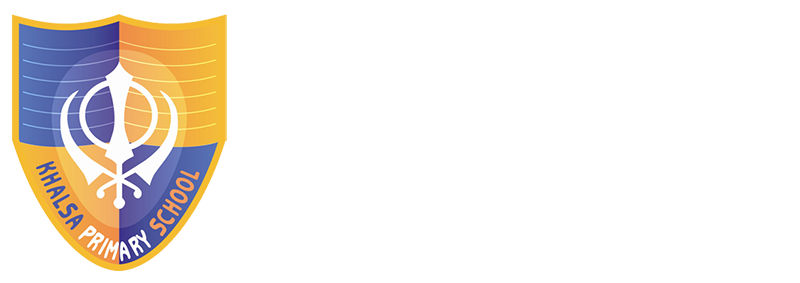Maths
OUR ASPIRATION FOR EVERY LEARNER:
At Khalsa Primary we are building a whole new culture of deep understanding, confidence and competence in Maths – a culture that produces strong, secure learning and real progress. We are shaping confident, happy and resilient mathematicians who relish the challenge of maths. We are committed to working together to make a difference to every pupil so that they can use their learning to make a positive contribution to the world around them.
Focus on deepening pupils understanding:
At Khalsa Primary we follow the White Rose scheme of work which is based around the principles of mastery. Following this scheme allows all pupils to benefit from deepening their conceptual understanding of Mathematics.
It incorporates concrete, pictorial and abstract approaches to help pupils explore and demonstrate Mathematical ideas, enrich their learning experience and deepen understanding.
Concrete – pupils have the opportunity to use concrete objects and manipulatives to help them understand and explain what they are doing. Manipulatives are used as a scaffold and are removed when pupils become confident.
Pictorial – pupils then build on this concrete approach by using pictorial representations. These representations can then be used to reason and solve problems.
Abstract – With the foundations firmly laid, pupils are able to move to an abstract approach using numbers and key concepts with confidence.
EYFS
By the end of the EYFS curriculum, most pupils will be able to have a deep understanding of number to 10, including the composition of each number; to subitise (recognise quantities without counting) up to 5; to automatically recall (without reference to rhymes, counting or other aids) number bonds up to 5 (including subtraction facts) and some number bonds to 10, including double facts; verbally count beyond 20, recognising the pattern of the counting system; compare quantities up to 10 in different contexts; explore and represent patterns within numbers up to 10.
Key stage 1
The principal focus in key stage 1 is to ensure that pupils develop confidence and mental fluency with whole numbers, counting and place value. At this stage, pupils develop their ability to recognise, describe, draw, compare and sort different shapes and use the related vocabulary. Teaching involves using a range of measures to describe and compare different quantities such as length, mass, capacity/volume, time and money. By the end of year 2, pupils should know the number bonds to 20 and be precise in using and understanding place value. An emphasis on practice at this early stage will aid fluency.
Key stage 2
At key stage 2 pupils extend their understanding of the number system and place value to include larger integers. This develops the connections that pupils make between multiplication and division with fractions, decimals, percentages and ratio. Pupils are taught to develop their ability to solve a wider range of problems, including increasingly complex properties of numbers and arithmetic, and problems demanding efficient written and mental methods of calculation.
By the end of year 6, pupils are fluent in written methods for all four operations, including long multiplication and division, and in working with fractions, decimals and percentages.
We build our pupils to be Secondary school ready by ensuring a strong subject knowledge of the mathematical fundamentals of demonstrating fluency, reasoning mathematically and solving mathematical problems in different contexts.
WHAT WE DO TO ACHIEVE OUR ASPIRATIONS:
Fluency:
Pupils should be able to recall and apply mathematical knowledge both rapidly and accurately. As well as fluency of facts and procedures, pupils are taught to move confidently between contexts and representations, recognise relationships and make connections in mathematics. Frequent, carefully designed, intelligent practice from teachers supports them to achieve a high level of fluency.
The teaching at Khalsa Primary enables pupils to truly grasp a concept, and the challenge comes from investigating it in new, alternative and more complex ways. Pupils at Khalsa Primary become independent, reflective thinkers, whose skills not only liberate them in maths but also support them across the curriculum.
Problem solving:
Mathematical problem solving is at the heart of our approach. Pupils are encouraged to identify, understand and apply relevant mathematical principles and make connections between different ideas. This builds the skills needed to tackle new problems, rather than simply repeating routines without a secure understanding.
Mathematical concepts are explored in a variety of representations and problem-solving contexts to give pupils a richer and deeper learning experience. Pupils combine different concepts to solve complex problems and apply knowledge to real-life situations.
Reasoning:
The way pupils speak and write about mathematics transforms their learning. Approaches used are carefully sequenced, structured approach to introduce and reinforce mathematical vocabulary. We are teaching pupils to explain mathematics in full sentences. Being able to say not just what the answer is, but how they know it is right. This is key to building mathematical language and reasoning skills.
WHAT WE DO TO MEASURE OUR SUCCESS:
Throughout the school pupils are assessed against the National Curriculum objectives. We measure the success of our curriculum through the following opportunities:
- At the end of KS1, a formal teacher assessment judgment is made by teachers.
- At the end of year 4 the children take the National Multiplication Check.
- At the end of KS2 children are tested through the SATs tests.
- Moderation and standardisation activities are planned to ensure our judgments are accurate.
- Pupils discuss their learning; which includes discussion of their thoughts, ideas, processing and evaluations of work.
- Low stake assessments and quizzes are carefully planned into lessons. Platforms such as learning by questions are used to identify strengths and areas that pupils still need to continue to work on.
- Monitoring activities are conducted to ensure that standards remain high across the teaching of maths.
